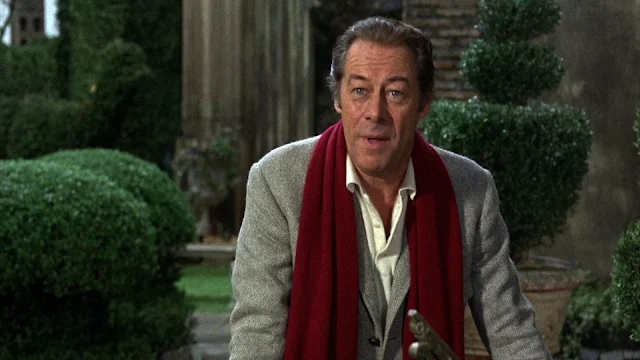 |
| Rosemary Leach, Daniel Day-Lewis, Simon Callow, Helena Bonham Carter, Rupert Graves in A Room With a View |
Lucy Honeychurch: Helena Bonham Carter
Charlotte Bartlett: Maggie Smith
George Emerson: Julian Sands
Mr. Emerson: Denholm Elliott
The Rev. Mr. Beebe: Simon Callow
Eleanor Lavish: Judi Dench
Cecil Vyse: Daniel Day-Lewis
Mrs. Honeychurch: Rosemary Leach
Freddy Honeychurch: Rupert Graves
Director: James Ivory
Screenplay: Ruth Prawer Jhabvala
Based on a novel by E.M. Forster
Cinematography: Tony Pierce-Roberts
Production design: Brian Ackland Snow, Gianni Quaranta
Music: Richard Robbins
Costume design: Jenny Beavan, John Bright
James Ivory and producer Ismail Merchant had a collaboration that began with the formation of Merchant Ivory Productions in 1961 and lasted until Merchant's death in 2005. It usually included the screenwriter Ruth Prawer Jhabvala. The trio developed a reputation for literary adaptations that were beautifully filmed with opulent sets and costumes and a gallery of celebrated stars -- most of them British. But the trouble with developing a distinctive style is that you can become a cliché: "Merchant Ivory" eventually became a label for a film that was tastefully middlebrow -- well-done and entertaining but just a tad safe. It's a pity, because their best films --
Howards End (1992),
The Remains of the Day (1993), and this one -- set a high standard, despite their "safeness." Few films have a better sense of place and time than
A Room With a View, in its depiction of Florence at the start of the 20th century. Granted, it leans a bit too heavily on the cliché about stuffy Brits losing their cool in the warmer climate of Tuscany, but that's the fault of E.M. Forster's novel -- not one of his major works -- and not of Jhabvala's Oscar-winning screenplay. Oscars also went to the art direction team and to costumers Jenny Beavan and John Bright, and it was nominated for best picture, for the supporting performances of Denholm Elliott and Maggie Smith, for Ivory's direction, and for Tony Pierce-Roberts's cinematography. The cast includes Helena Bonham Carter (in her "corset-roles" period) and Julian Sands, along with a then little-known Daniel Day-Lewis. Proof that Day-Lewis is one of the greatest actors of all time is no longer needed, but it's worth contemplating that he created the character of the prissy Cecil Vyse in this film within a year of appearing as the gay street punk Johnny in
My Beautiful Laundrette (Stephen Frears), and that he would follow with the sexy Tomas in
The Unbearable Lightness of Being (Philip Kaufman, 1988), the paralyzed Christy Brown in
My Left Foot (Jim Sheridan, 1989), and the dashing Hawkeye in
The Last of the Mohicans (Michael Mann, 1992). Day-Lewis's Cecil Vyse verges on a caricature of the sexually repressed Brit, but he has an affecting moment near the end when, after Lucy (Bonham Carter) breaks off their engagement, he emerges as a vulnerable, three-dimensional character. Richard Robbins's fine score is memorably supplemented by Kiri Te Kanawa's recordings of two Puccini arias: "O mio babbino caro" from
Gianni Schicchi and "Chi il bel sogno di Doretta" from
La Rondine.
















